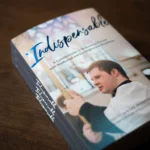 I just got back from Arcatheos. It may just be the best summer camp in North America. It was recently rated the 2nd coolest in the world on Cracked.com. The number 1 camp cost $10,000, and includes supersonic flights and close in encounters with African wildlife. Coming second to that is impressive, especially considering it costs under $400.
I just got back from Arcatheos. It may just be the best summer camp in North America. It was recently rated the 2nd coolest in the world on Cracked.com. The number 1 camp cost $10,000, and includes supersonic flights and close in encounters with African wildlife. Coming second to that is impressive, especially considering it costs under $400.
The camp is insane with sword battles, staged explosions, and a story-line that grabs you in from the moment the boys arrive. This year the story was about the Dark Apprentice who stole the key of Arcatheos to make himself powerful. You probably can’t do a lot of the cool stuff they do (they have thousands of dollars of swords and costumes, two castles made of plywood, foam covered “LARP” (Live-Action Role Play) swords for the boys, and brought in a pro special effects team for one scene.
Many of us could only wish we could reproduce something like that elsewhere. I doubt the full repertoire could be set plus being creative on your own is usually better than copying others’ creativity. Nonetheless, this camp taught me 2 lessons that can be applied to any summer camp: the team, and the story.
 How often do we organize a summer camp or youth retreat and have to run around like a chicken with our head cut off? We usually get only a small number of dads and counselors and they expect a free ride (or in the counselors’ case often payment). However, this camp had 20 dads and a 10 college-aged guys who worked the week of the camp for free, they all even paid (it was reduced for the college students).
How often do we organize a summer camp or youth retreat and have to run around like a chicken with our head cut off? We usually get only a small number of dads and counselors and they expect a free ride (or in the counselors’ case often payment). However, this camp had 20 dads and a 10 college-aged guys who worked the week of the camp for free, they all even paid (it was reduced for the college students).
Not only was there a big team but they worked well together, I had my radio on all week, with them in daily meetings, and talking in person with them at all different times of the day or night. I was amazed by how each took their own responsibility, how they discussed things to work to an agreement, and how they will always willing to serve. The men came from all places (20 minutes to 14 hours away) and professions (a doctor, a banker, a chemist, several tradesmen, etc.) – the only 2 uniting elements were their faith and the camp. Working on this camp for between 1 and 11 years has formed them into a compact brotherhood. I came in as an assistant chaplain and felt right at home with all of them from the get-go.
 At first glance you think the story is pure cool. Most kids wish they were knights fighting monsters (called dröch in Arcatheos). However, the good story teaches the kids a lesson. The obvious sin of the Dark Apprentice was pride and by modeling this vice he taught the boys humility. In one scene a good character, Aurelius, is taking off all his signs of power to be purified as the bearer of the key. Then, just as he removes the last sign of power, his aide stabs him and steals the key revealing that he is the Dark Apprentice. He then crosses the river and gloats about it. This gives the boys a contrast between humility and pride and they all want to be the humble man.
At first glance you think the story is pure cool. Most kids wish they were knights fighting monsters (called dröch in Arcatheos). However, the good story teaches the kids a lesson. The obvious sin of the Dark Apprentice was pride and by modeling this vice he taught the boys humility. In one scene a good character, Aurelius, is taking off all his signs of power to be purified as the bearer of the key. Then, just as he removes the last sign of power, his aide stabs him and steals the key revealing that he is the Dark Apprentice. He then crosses the river and gloats about it. This gives the boys a contrast between humility and pride and they all want to be the humble man.
 I could quote a few other examples but I want to get to the point. Stories teach, and the more they are lived the more they teach – I bet every kid attending camp could repeat the story of the Dark Apprentice more than the last book they read. So often we try to stick the lessons and spiritual parts of youth activities into talks or similar. I think kids learn a lot more from a story they are part of. They experience the virtue not just hear about it.
I could quote a few other examples but I want to get to the point. Stories teach, and the more they are lived the more they teach – I bet every kid attending camp could repeat the story of the Dark Apprentice more than the last book they read. So often we try to stick the lessons and spiritual parts of youth activities into talks or similar. I think kids learn a lot more from a story they are part of. They experience the virtue not just hear about it.
I’m looking forward to Arcatheos next year. I’ll probably be the main chaplain (yikes!). Will the Dark Apprentice return? How will he use the key of Arcatheos? I’m sure that the team is already working on this to make an even better camp next year.
[All photos are from the gallery at www.arcatheos.com.]





